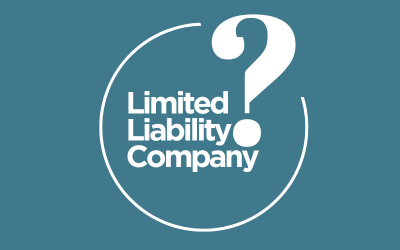Payroll processing is a critical element of any business that wants to grow and thrive. To put it in simple terms: payroll is the process by which employers pay their employees for their work. It’s a vital activity that can get quite complicated.
Managing payroll involves more than just writing a check to employees for their hours worked. Much, much more goes into it. Calculating net pay can get quite complicated depending on applicable laws, payroll tax requirements, insurance, and more. Issuing checks (or direct deposits) to employees is only part of the equation. Employers must also ensure they follow through on reporting payroll activities and submitting payroll tax payments to the proper tax agencies.
Essential Requirements for Payroll Processing
1. Employer Identification Number (EIN)
First things first, a business will need to obtain an EIN (Employer Identification Number) if it doesn’t already have one. Also known as Federal Tax ID Number, an EIN is a nine-digit number that identifies a business. An EIN is used to set up various tax accounts, and banks will often require an EIN before opening banking accounts. The IRS issues EINs for free. You can apply for them directly through the IRS or consider asking CorpNet to obtain one on your behalf.
2. Employee Information
Some of the forms business owners will need to establish payroll for an employee include:
- IRS Form W-4 (Employee’s Withholding Allowance Certificate) – This determines how much federal income tax the employer should withhold from an employee’s pay.
- State W-4 – Some states use the IRS W-4 form, while others have their own version of the W-4. Before employees start a new job, they must complete a state W-4, unless the state does not collect state income tax.
- W-9 (Request for Taxpayer Identification Number and Certification) – Although businesses do not withhold taxes from compensation to independent contractors, they must track what they pay them and issue a 1099 Form at the end of the year.
- USCIS Form I-9 (Employment Eligibility Verification – Employers must have new hires complete this form to verify an employee’s identity and that the employee has legal authorization to work in the United States.
- Health insurance forms – Employers that provide medical, dental, and vision insurance to employees will need to have participating employees complete these forms to determine any applicable payroll deductions.
- 401 (K) plan paperwork – When providing a 401 (K) option to employees, employers will need to know the funds that should be withheld from a worker’s pay and deposited into that employee’s 401 (K) account.
3. Taxes and Withholding
Employers calculate employees’ net pay based on gross wages or salary minus various withholdings (such as taxes, medical insurance premiums, retirement contributions, and possibly other deductions). It gets tricky because some deductions must be made before taxes have been assessed, and some are after-tax deductions. You can find additional information about tax withholdings on the IRS website. Keep in mind that some states have rules that are different from those of federal government, so it’s critical to find out what your state has in place.
Businesses must put these funds into a separate account until submitting them to the IRS, Social Security Administration (SSA), or other agency.
Below is an overview of the taxes that employers must withhold from employee’s wages and salaries:
- Federal Income Tax – Employers withhold federal income tax from an employee’s pay according to the information on the W-4 form.
- State and Local Income Taxes – In jurisdictions where these taxes apply, employers must withhold them from their employees’ pay. To do this, they first need to register for payroll taxes in their state.
- Social Security and Medicare Taxes – Known as FICA taxes, these taxes are paid in equal measures by the employer and the employee. In other words, employees’ pay half (through what’s withheld from their pay) and employers pay the other half.
- Other Payroll Deductions – Some of the other deductions employers’ may need to withhold from employees’ pay include:
- 401(K) and other retirement fund contributions
- Court-ordered wage garnishments
- Child support payments
- Health and life insurance premiums
- Unpaid vacation time
- Unpaid sick time
- Union dues
CorpNet Can Help
In all 50 states, CorpNet can help you obtain an EIN from the IRS and register for the required state and local tax accounts needed to hire employees, set up payroll, and file tax returns.
4. Payroll-Related Fees Not Paid by Employees
Payroll processing also involves certain taxes and fees that the employer must pay but that aren’t deducted from employees’ wages and salaries:
- Federal Unemployment Taxes – As per FUTA (Federal Unemployment Tax Act), employers owe federal unemployment taxes if they paid at least $1,500 in wages during any calendar quarter in the current year or the one before. After an employee’s year-to-date wages exceed $7,000, an employer no longer has to pay FUTA for that worker in that tax year. The current FUTA rate is 6 percent. According to the IRS website, “Generally, employers may receive a credit of 5.4% when they file their Form 940, Employer’s Annual Federal Unemployment (FUTA) Tax Return, to result in a net FUTA tax rate of 0.6% (6.0% – 5.4% = 0.6%).”
- State Unemployment Taxes – Some states have their own unemployment insurance program, and employers must register to be able to file wage reports and submit tax payments. The SUTA (State Unemployment Tax Act) in those individual states sets the limit to how much of employees’ wages are taxed. That “taxable wage” and the unemployment tax rate vary from one state to the next.
- Workers’ Compensation Insurance – Workers’ compensation is a form of insurance that employers purchase to cover costs associated with employees’ work-related injuries and illnesses. Employees that collect workers’ compensation benefits may not sue their employers. Some states require businesses to purchase the insurance through a state-mandated program while in others employers can buy it from an insurance carrier, agent, or broker. Federal employees’ workers’ compensation insurance and claims are handled through the federal government.
5. End of Year Payroll Tasks
Businesses must keep records of the withholdings from employees’ pay throughout the year and then report and summarize it on W-2 forms (for payroll employees) or 1099 forms (for independent contractors). Employers must send copies of each employee’s form to the IRS, the employee, and the Social Security Administration.
Also, at the end of the tax year, employers must submit IRS Form 940 to report their FUTA tax. They must also submit any payroll and tax reporting forms required by the state.
Can Employers Handle Their Own Payroll Processing?
Employers may process their own payroll; however, there’s a lot that can go wrong. Errors in payroll can become costly; failure to withhold and pay mandated taxes can result in fines and penalties. Also, issuing incorrect pay to employees can harm a company’s reputation, making it harder to attract top talent.
Complexities that make processing payroll on your own challenging:
- Periodic tax code (and rate) changes at the federal, state, and local levels – As administrations come and go, so do tax regulations.
- Maintenance of accurate and complete time and wage records for all employees – This requires immaculate record-keeping and organizational prowess.
- Jurisdictional differences in withholding requirements, reporting schedules, and deposit deadlines – States, counties, and cities set their own rules and due dates. Things can get especially complicated when an employer has out-of-state remote employees or employees who live in one state but work in another. Moreover, every jurisdiction has its own reporting and payment portals for which employers must set up and maintain accounts.
- Complex calculations involved in computing wages, taxes, deductions, and benefits – The math is no joke; trying to do it manually with spreadsheets or using payroll software that you don’t understand can lead to trouble.
- Difficulty of detecting and fixing errors – If you or your appointed in-house payroll team is unfamiliar with all payroll rules and requirements, you risk missing mistakes when they happen.
Those challenges in combination with a lack of expertise and experience in managing payroll can lead to potentially costly mistakes, such as:
- Withholding the wrong tax amounts
- Not calculating overtime correctly
- Not reporting and depositing tax payments correctly
- Incorrectly classifying employees as independent contractors (i.e., not withholding taxes from their pay as required)
- Misclassifying exempt and non-exempt employees
- Not considering bank holidays when setting your payroll-processing schedule
With ever-changing laws and many moving parts, it can be beneficial to work with a bookkeeper or accounting professional who has expertise in payroll or contract with a full-service payroll software provider that automates tasks and takes much of the confusion out of the process.
Payroll service providers have structured software that:
- Centralizes payroll-related information
- Ensures calculations are carried out accurately (e.g., wages and salaries, overtime pay, vacation and sick time, tax deductions, health plan and retirement contributions, wage garnishments, payslips, etc.)
- Issues employees’ pay correctly and on time
- Reports and deposits taxes and withholdings
Payroll Software Vendors to Consider
You have many options when choosing payroll software and processing companies. Below are several that can help you manage your payroll process, avoid costly mistakes, keep your data secure, and stay in compliance with federal, state, and local payroll laws—all while saving you valuable time.
| Gusto | BambooHR | Paychex Flex | Paycor | Patriot Payroll | OnPay | Workday HCM | Zenefits | |
|---|---|---|---|---|---|---|---|---|
| User Size | 1-50 | 1-1000 | 1-1000 | 2-1000 | 1-50 | 1-500 | 11-1000+ | 1-1000+ |
| SaaS Based | Yes | Yes | Yes | Yes | Yes | Yes | Yes | Yes |
| App Available | Yes | Yes | Yes | Yes | Yes | Yes | Yes | |
| 24/7 Support | Yes | Yes | ||||||
| Multi-State | Yes | Yes | Yes | Yes | Yes | Yes | Yes | Yes |
| Multi-Country | Yes | Yes | ||||||
| Benefits Management | Yes | Yes | Yes | Yes | Yes | Yes | Yes | |
| 401(k) Tracking | Yes | Yes | Yes | Yes | Yes | Yes | Yes | Yes |
| Check Printing | Yes | Yes | Yes | Yes | Yes | Yes | Yes | |
| Direct Deposit | Yes | Yes | Yes | Yes | Yes | Yes | Yes | Yes |
| Payroll Reporting | Yes | Yes | Yes | Yes | Yes | Yes | Yes | |
| Self Service Portal | Yes | Yes | Yes | Yes | Yes | Yes | Yes | Yes |
| Tax Compliance | Yes | Yes | Yes | Yes | Yes | Yes | Yes | Yes |
| W-2 Preparation | Yes | Yes | Yes | Yes | Yes | Yes | Yes | Yes |
| Vacation/Leave Tracking | Yes | Yes | Yes | Yes | Yes | Yes | Yes | Yes |
| Sick Leave Tracking | Yes | Yes | Yes | Yes | ||||
| Wage Garnishment | Yes | Yes | Yes | Yes | Yes | Yes | Yes | Yes |
| COBRA Administration | Yes | Add-on | Add-on | Yes | ||||
| Disability Insurance Administration | Yes | Yes | ||||||
| Health Insurance Administration | Yes | Yes | Add-on | Add-on | Yes |
Learn More About Payroll Processing
- What Is Payroll?
- What Are Payroll Deductions?
- What Are Payroll Taxes?
- What is FUTA?
- What is FICA?
- Is State Unemployment Insurance Required?
- Registering for Payroll Taxes
- Setting Up Payroll for an LLC or Corporation
- Tax Registration: What Your Business Needs to Know
- Payroll Mistakes That Can Hurt Your Small Business
- How Do You Pay Yourself as a Sole Proprietor?
- How Do LLC Owners Get Paid?
- How to Manage Payroll for Restaurants
- Hiring Family Members in a Small Business
- Hiring Remote Employees in Another State
- Legal Requirements for HIring Out-of-State Employees
- Independent Contractors vs. Employee
- What Every Small Business Should Know About 1099s
- State Timelines & Delivery Methods Guide





